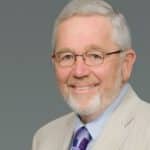This is the second in a series of posts about the California HealthCare Foundation’s Chronic Disease Care conference (the first was Happy Dogs in a Pile of Sticks).
Patient Voices: Managing Chronic Conditions, Living our Lives
Ted Eytan snapped a photo that captured this session: Patient Involvement Makes People Smile
Here is each person’s story:
Nancy Ortiz, patient advisor: A back injury at age 48 forced her to rest, re-evaluate, and decide to improve her life, starting with her first physical in years. “My doctor’s first words at my first visit set the tone, ‘How can I help you?’ But the major challenge of living with a chronic disease is that you never get a day off.”
Suzy Menjivar, patient advisor: Recently diagnosed with diabetes after years as a provider in the field: “Now I had to practice what I preach — and I’m in love with carbohydrates!” She is scared of needles, but that is a significant part of diabetes management – “and I know I didn’t want to be a non-compliant patient!” (which got a big laugh from the audience).
Ardes Gardner, patient advisor: Played in the NFL for two years and learned to eat “heavy and hard.” “I ran from diabetes for 10 months. Providers: don’t stop repeating the information, never think your work is in vain. Thank you for constantly shoving that information in my face.” His 10-year-old son is his major motivation to get better and talking openly about his health is his new mission. “No one at my church had diabetes until I stood up. Then everyone came forward.”
During the Q&A, an audience member asked if a provider can create decision points like the ones which prompted Nancy and Ardes to make positive changes in their lives. Ardes answered, “No, if the patient isn’t ready, they won’t make a change.” He counseled providers to screen for depression and aggressively treat it, but stop the fear-mongering since “it becomes meaningless.” He said that providers can continue to remind patients about how to manage a chronic disease, but the why comes from within each person.
As the audience filed out of the ballroom, I was glad to be heading toward a discussion group which included a “patient advisor,” as 6 out of 25 of the panels did at this conference. As Nancy put it, “Patients have a lot of wisdom.”






Excellent.
There’s an elephant-sized chronic disease that nobody thinks of as chronic: cancer. When I got my diagnosis, everyone (in our ignorance) presumed it was “death or cure,” but reality today is that LOTS of people are just living with it, learning to manage it with diet, mind/body, etc.
My current favorite book, Anticancer: A New Way of Life, has a mindbending concept: cancer without disease. I’m a specimen.
Clarifying question from @Sarahrpark: Re: the CHCF event, what is a “patient advisor”?
My reply: I think each person is a peer educator or counselor in their town or region.
If anyone from CHCF or elsewhere has more information, please post it!
Regarding what defines a “patient advisor,” CHCF consciously used the term out of respect for the role that these inidivuals would fill at the conference. (One speaker felt that the label of “patient” changed the perception of how she was viewed by the medical establishment; she saw herself perceived as less autonomous and less competent.) CHCF asked the individuals who would share their experience from the perspective of a patient if “patient advisor” was acceptable, and they agreed. Several of these speakers are peer educators in their communities as well and/or serve on internal committees for health care delivery organizations.
Thanks, Caron! Your conference had more patient voices than any I have been to, but I imagine it was a challenge to identify people who would be ready, willing, and able to take a day out of their lives to speak at your event. Could you tell us more about how you put together the speaker list?
To identify patient voices, we first thought about for which sessions this would make the most sense. For example, most of the patient advisors were featured during the “Patient Voices” panel and the sessions on “Practice Level Changes and Tactics,” since they were better able to comment on these topics (e.g., care transitions, sharing medical records with patients, self management support) than on the themes for the other sets of panels — “Organizational Approaches to Quality” and “Bringing Better Care to a Population of Patients.” (Part of the reason is that few patient advisors are currently involved in improving care at the organizational and population health level.)
Then we contacted 1) patient advisors directly who had been recommended by the conference planning committee or other colleagues and 2) already invited speakers (typically health care providers) for references, either to their own patients or patient advisors with whom they had worked. In one case, a patient advisor recommended one of her friends (Nancy Ortiz), who had been trained to be a peer educator for individuals with diabetes, to be on the Patient Voices panel.
I called and spoke with each potential patient advisor and sent reminders and details about the conference by e-mail. For the Patient Voices panel, we also scheduled a brief teleconference with all the panelists to help give them an idea of what to expect.
Finally, CHCF provided a small honorarium to each of the patient advisors. Several have non-health care professions and had to take personal time to speak at the conference.
The agenda and conference materials for “Chronic Disease Care: Better Ideas in Action,” are available at: http://www.calchroniccare.org/Event-Materials/2008.aspx
patient advisors directly who had been recommended by the conference planning committee or other colleagues